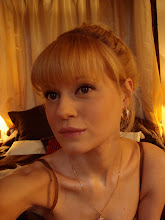Good evening to all!
Having recollected in my last post the book by Sheldon Rampton and John Stauber I decided to read one more of their books: Trust Us We're Experts: How Industry Manipulates Science and Gambles With Your Future (2001, NY: Jeremy P. Tarcher / Putnam).
I expected to find some information on propaganda and political PR, but the book turned out to be about health, food safety, medical and environmental issues in PR. Though from the point of view of case studies in the named questions this book is really well written.
However on the first 30 pages of the book I found some interesting facts:
1. the website of Burson-Marsteller proclaims that "Perceptions are real... They can be managed... to motivate behavior... to create positive business results" (p.2);
2. Lindheim talking about the role of a professional perception manager says that the public is "emotional ans incapable of rational discourse" (p.3);
3. Walter Lippmann in 1921 described a "pseudo-environment" as "the adjustment of man to his environment... through the medium of fictions" (p.25);
4. the Wag the Dog movie (1998) showed the extent to which present media can manufacture false realities by demonstrating how "government advisers created a fictional war on a Hollywood sound stage to distract public attention from a presidential sex scandal" (p. 24).
All these points made me think over the role of American people in power in manipulating public's perception of reality. Was such a machine the USA's creation? Why do they speak aloud about the technologically manufactured illusion in modern cinema? Why people trust so easily what they see in news knowing that it is often a fiction?
The only answer that comes to my mind is that PR professionals play on people's emotions and compression while putting a message across, and that it is much easier for people to believe that what is shown is real, rather than think over it, analyze the information and search for truth.
Today virtual reality, "Potemkin villages" (p. 11-17) and made-for-TV fabrications are all around as an undiscovered part of our everyday life.
Tuesday, 26 January 2010
Subscribe to:
Post Comments (Atom)




No comments:
Post a Comment